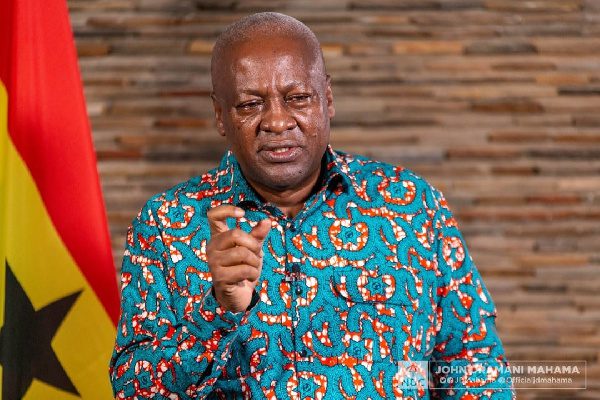The National Democratic Congress (NDC) flagbearer, John Dramani Mahama, has characterized 2023 as a year of suffering and difficult circumstances that President Nana Addo Dankwa Akufo-Addo and his vice president, Dr. Mahamudu Bawumia, have imposed on the people of Ghana.
Mahama said that 2023 had been nothing more than a continuation of years of suffering and economic difficulties for Ghanaians in his 2024 New Year’s message from his Tamale home.
Mr. Mahama went on to say that although many people had thought that the 2024 budget would at least provide some relief, what Ghanaians actually received from the government was a bevy of new taxes.
“The 2024 budget provides no hope for an improvement in our circumstances. A raft of new tax measures have been slapped on us to raise an additional GH¢11 billion from the already overburdened taxpayers. In that same budget, while they sort to squeeze the last blood from Ghanaians through increased taxes, they have increased the money allocated to the Office of the President from GH¢1.4 billion to over GH¢2 billion.”
John Dramani Mahama outlines vision for Ghana in New Year Message #UTVNews pic.twitter.com/7xMJT3ygsd
— UTV Ghana (@utvghana) January 4, 2024
Therefore, if elected, he suggested that the NDC present a new budget in April 2025 that would include incentives for the business community to provide job opportunities for young people without jobs.
“The National Democratic Congress [NDC] has developed a comprehensive plan which will be shared with businesses, academia, civil society, and the youth to create jobs and opportunities for all our young people. It will also encourage business ownership and entrepreneurship among them.”
“In April 2025, the new NDC government shall introduce a new budget to support and build more businesses and adjust taxes that will serve as an incentive for job creation.”
Meanwhile, Mahama has promised to lower electricity rates and provide tax breaks to companies that implement a 24-hour economic model.
Mahama wants to stimulate the economy by encouraging efficiency, productivity, and the development of a dynamic atmosphere.
Through time-of-use tariffs, he highlighted enhanced security, public safety, and affordable electricity along with tax incentives for businesses adopting the 24-hour policy.

